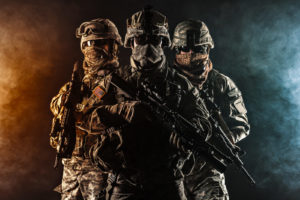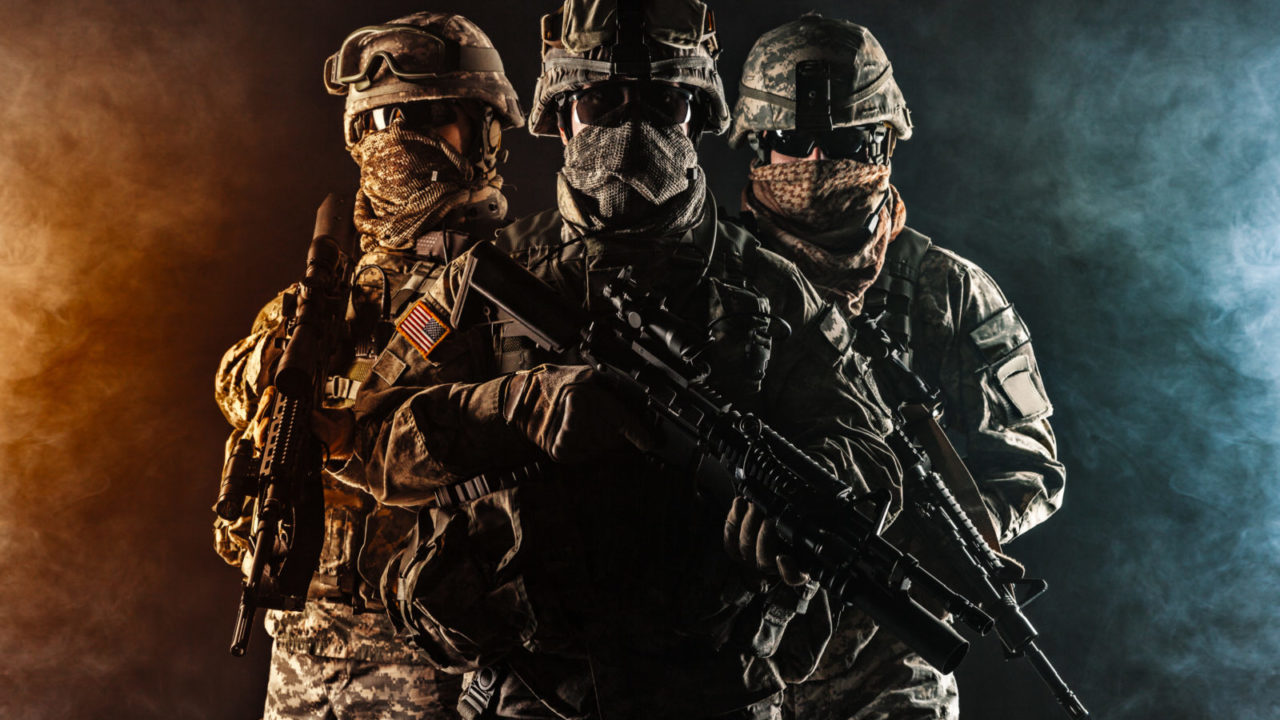This first appeared in The Havok Journal in January 2017.
___________
Author’s Note: When it comes to terrorism, U.S. foreign policy and military operations, the true nature of Islam, and the extent of Islamic radicalization, there are no shortages of opinions. As a survivor of the 9/11 attacks and a former soldier, I certainly had my own. But when it came to discussing Islam intelligently, I had more questions than answers. Frustratingly, most interviews I’ve read or seen were apologias for Islam; of course, a few were reflexively anti-Islamic shoutfests.
So it was with an eye towards conducting a challenging, clarifying conversation that I asked Sayed and Deen, two Muslim-American veterans, to sit down and talk with me. We bonded quickly, the way soldiers do, over jokes, bullshit, and some shared bitching. I was impressed with their thoughtfulness and their passion. But our goal was understanding, not agreement. I found, in their answers, cause for both optimism and concern.
This interview is hardly the final answer on many of these subjects — we spoke for three hours and we could have spoken for twelve. But hopefully, over the course of this nine-part interview, we’ve managed to shed a little more light than heat on a range of subjects that sorely need it.
This is Part 4 of a nine-part series. You can start the series from the beginning here.
_______
CPM: Most Americans, I think, would say, “We get it, there’s a war within Islam. But how does San Bernardino fit in with this? Why does Islam’s internal tumult need to involve us?”
Sayed: If I’m an Argentine Muslim, let’s say, I don’t really care about al-Qaeda because I’m more concerned about my day-to-day job — al-Qaeda has nothing to do with me. So I don’t really pay attention. But, as a result, al-Qaeda is still around. The Muslim community isn’t mobilized against them.
Now, though, with the formation of Daesh, the Muslim community just might mobilize because you have a group that wants to spread their perverted, evil version of what they call Islam by the sword, everywhere.
Daesh says, “If you’re a non-Muslim, I can recruit you. I can take you as a prisoner of war. I can brainwash you. I can turn you to my side. But if you’re a Muslim, you are a threat — even if you’re not a practicing Muslim, you have the basics of the faith so you’ll know enough to say, “What Daesh is preaching is not right. I know the truth.”

CPM: So, Muslims are a greater threat than non-Muslims?
Sayed: Correct, but the thing is what Daesh is doing with San Bernardino, is perfecting a strategy of divide and conquer. Al-Baghdadi wants to show Muslims that the West just won’t accept them, he wants to drive that wedge.
And you know what? He’s doing a good job in the West with making Muslims feel like we’re alienated. That is what happens, in my opinion.
I grew up during the years around 9/11. I had the daughter of the police chief in my town say some horrific things to me, since I was a Muslim, right after 9/11. That never deterred me because I’ve always been proud to be an American. I’ve always wanted to be that soldier. For me, as hard as things got, I never lost sight that I’m an American and you can’t take that away. This is our country. We got attacked. I wanted to become a soldier.
But, for some people — especially during those teenage years when you’re feeling a little lost or alone — they may not have that feeling, so they are very easily influenced. That’s where radicalism comes in through social media.
If the three of us were Muslim teenagers and, Chris, you started talking about how great Osama bin Laden was, we’d call you out on it — “Dude, you’re crazy.” Until you gave up those radicalized views, we’d say, “Stay away from Chris.” No one would pay any attention to you.
And if you started making some moves, somebody would say, “He’s buying weapons. He’s buying a shitload of ammo. We got to do something.” But the way Daesh does it, they radicalize you but you withdraw. You don’t tell your friends and family what’s going on. We don’t know the signs of radicalization. We’re not from the military. We’re just average people.
Deen: I just finished a three-month-long Information Operations course. Good school, but we’re so far behind. We don’t want to understand the threat. We don’t understand the ideology.
ISIS doesn’t have to take a lot of time and effort to recruit because it presents the fix to an obvious problem. Recruits are like, “Hey, look. The Muslim world is screwed up. We’re in a repressive regime. We want to fix this our way.”
CPM: When you say “repressive regime,” you mean Saudi Arabia?
Sayed: Pakistan too. Afghanistan.
Deen: The recruits are saying, “Look, all these Muslim countries that say they’re Muslim are not Muslim. They’re just Muslim by name. The top echelons of their government are the absolute furthest thing from being Muslim. They’ll say whatever they want to the people and make whatever laws, but they do their own thing.”
CPM: So, the problem is a very perverted theocracy? It’s not like a corrupt Pope ruling the Holy Roman Empire, it’s like a ruler claiming to rule in Jesus’ name when he doesn’t even understand Christianity.
Deen: The people are being oppressed. The distribution of wealth is so uneven it’s ridiculous. There’s no education. Now, why is it so easy to get some of these recruits in the West? It’s because, as a Muslim, the hardest place to live is America, England — the West. That tests your faith.
CPM: Why?
Deen: Okay, if I lived in Saudi Arabia or Pakistan, it would be very hard for me to go get alcohol. There are no strip joints. You have to put in a real effort to do find vices. Here in the United States, almost everything is legal. If I want to go to a bar, I’m just going to go walk into a bar. Do I want to go to a strip club? I can go to a strip club. The things that test your faith are here. It’s the hardest place to be a Muslim.
CPM: I get that it’s hard to deal with the temptations of the West, but you’re actually saying that it’s harder to live here than under some of the more oppressive regimes like Saudi Arabia?
Deen: It’s almost like going to a rehab facility. It’s easy to live in an environment where it’s so clean and sterilized for you.
CPM: Even if it’s oppressive?
Deen: Even if it’s oppressive. But that’s part of Islam — to deal with those choices. It’s your choice. Do you want to go to a strip club or not?
CPM: If places like Saudi Arabia don’t allow you that choice, or if they threaten to punish you for engaging in certain kinds of activities — you’re saying that would be a perversion of Islam?
Deen: Yes. But at the same time, they’ll do exactly the same activities they’re punishing other people for. If the rich can do certain things, and the poor know that’s going on but they can’t do it, which is more reason for radicalization.
(Continued On Next Page)
Buy Me A Coffee
The Havok Journal seeks to serve as a voice of the Veteran and First Responder communities through a focus on current affairs and articles of interest to the public in general, and the veteran community in particular. We strive to offer timely, current, and informative content, with the occasional piece focused on entertainment. We are continually expanding and striving to improve the readers’ experience.
© 2024 The Havok Journal
The Havok Journal welcomes re-posting of our original content as long as it is done in compliance with our Terms of Use.

